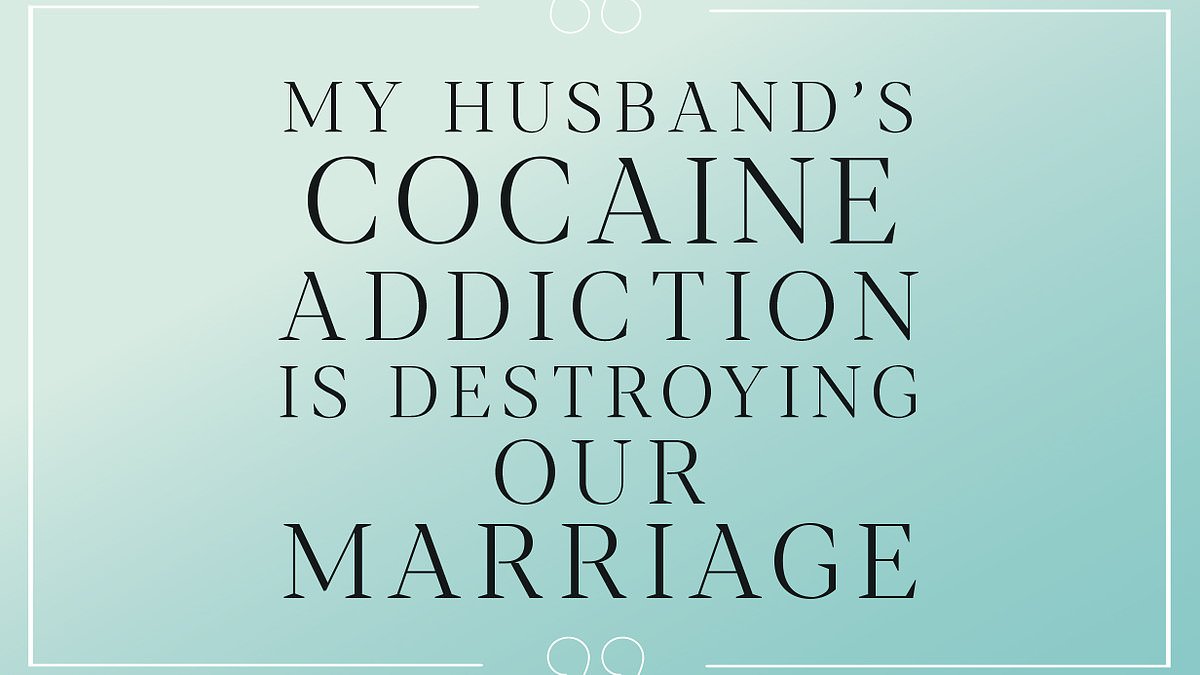My high-powered husband won’t admit he’s hooked on cocaine. I’m scared. This is so common, says CAROLINE WEST-MEADS. This is exactly how to make him change
By Caroline West-Meads,Editor
Copyright dailymail

Q I never thought I’d be writing this, but I feel desperate and don’t know where to turn. My husband is in his late 40s and, on the surface, everything looks perfect: we have two young children, a lovely home, a new car and he has a high-powered career. To outsiders, he seems to have it all.
But behind closed doors, things are very different. He has become increasingly reliant on cocaine. We both experimented at parties in the past, but I stopped when we had children. He says he uses it to cope with the long hours and pressure of his job, or to celebrate after securing a new client. Now, though, it feels as if cocaine is what keeps him going.
The impact on our family is huge. His moods are unpredictable, arguments flare over nothing and he can be hurtful. He often lies about his use, even when it’s obvious. I’m frightened about the effect on our children, and while I love him dearly, I feel helpless. If this continues, it could destroy his health, our relationship and everything we’ve worked for. Yet when I raise it, he either dismisses me or gets defensive, convinced he’s ‘in control’ because he earns well and pays the bills. How can I help him when he doesn’t believe he has a problem?
A Watching someone you love slide into addiction is agonising, especially when they deny there is a problem. Yet his drug use is already hurting both you and the children.
Your husband may tell himself that cocaine helps him cope with his job, but the truth is that it harms health, strains relationships and fuels a violent drugs trade. His behaviour at home – mood swings, dishonesty, nastiness in arguments – is unacceptable. It puts your children at risk emotionally and sets a damaging example. You are right to be frightened.
When you talk to him, choose a calm moment. Be compassionate but firm: tell him you love him, but explain how his behaviour affects you and the children. Use ‘I’ statements, such as ‘I feel scared when you…’ rather than accusations, which may make him defensive. Be prepared for denial, but keep repeating the message with gentle persistence until he is ready to accept professional help.
It is OK to set clear boundaries. It is not about ultimatums, but about being honest: explain that if nothing changes, you may not be able to continue in the marriage. It is also important to get help for yourself. Smartrecovery.org.uk offers groups for partners or families as well as separate ones for the person with the addiction, giving you practical tools to help you cope. Family work often proves effective in treating an addiction. Adfam.org.uk and wearewithyou.org.uk are also good sources of support.
It is a daunting road ahead, but there is a way forward.
SHOULD I TELL HIM THAT I WAS GROOMED?
Q I became pregnant when I was 18, over 40 years ago. The father was a married family friend, aged 35, who I thought cared about me. We first had sex when I was 16. However, when I got pregnant he insisted I have an abortion.
I never told anyone and carried so much shame for a long time. I thought it was all my fault and I think my inability to trust eventually destroyed my marriage, which ended five years ago. I never told my husband.
However, I now realise that I was groomed. I desperately regret my marriage falling apart and I want to tell my ex-husband all about it in the hope that we could get back together. He is single and we are still friends. However, I don’t know where or how to begin and I am worried he might think I was stupid or that it was my fault at the time.
A I am sorry that you went through this. Please know that it was in no way your fault. You were a vulnerable teenager – it was indeed grooming and abuse. The shame belongs with the man who took advantage of you.
It must have been hard keeping this pain to yourself for so many years. However, before you confide in your ex-husband, it is important that you get help – to talk about being groomed and the pain of having had an abortion. Start with Rape Crisis (rapecrisis.org.uk, 0808 500 2222) and let them guide you to get counselling.
When you feel strong enough, you could tell your ex. There are no guarantees you will get back together. But as you miss him and are still friends he must have good qualities, such as kindness. You could at least talk through what happened, which might help you both.



